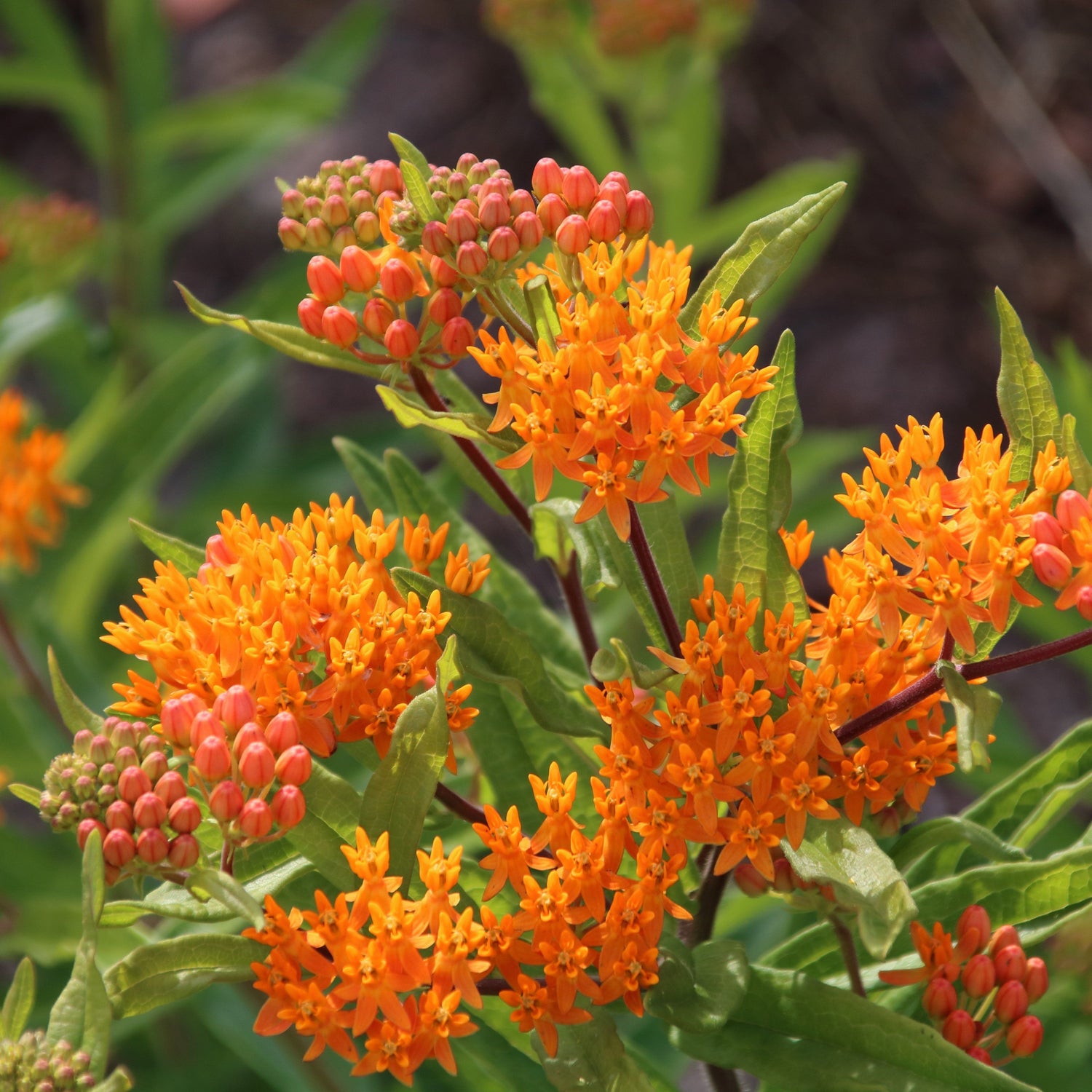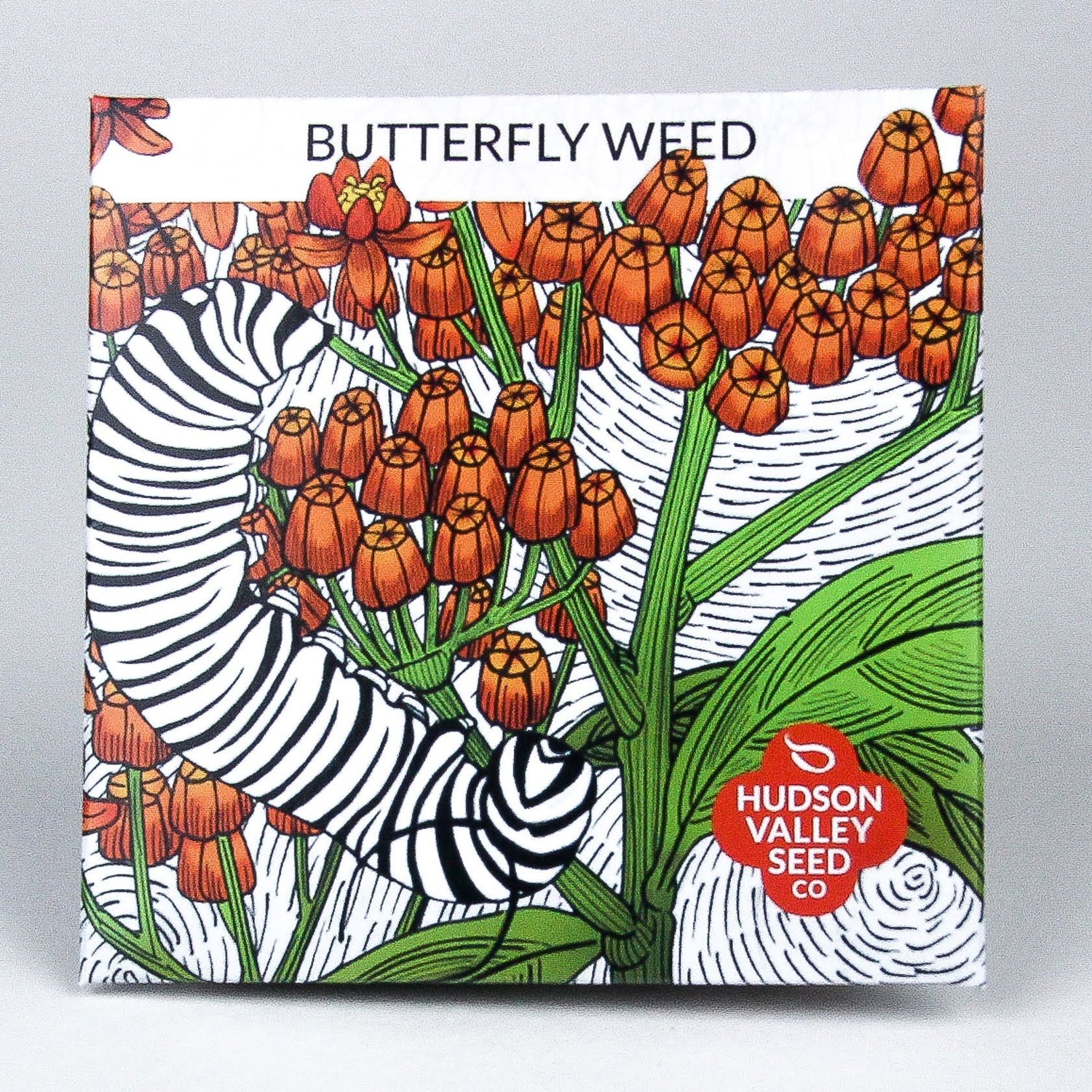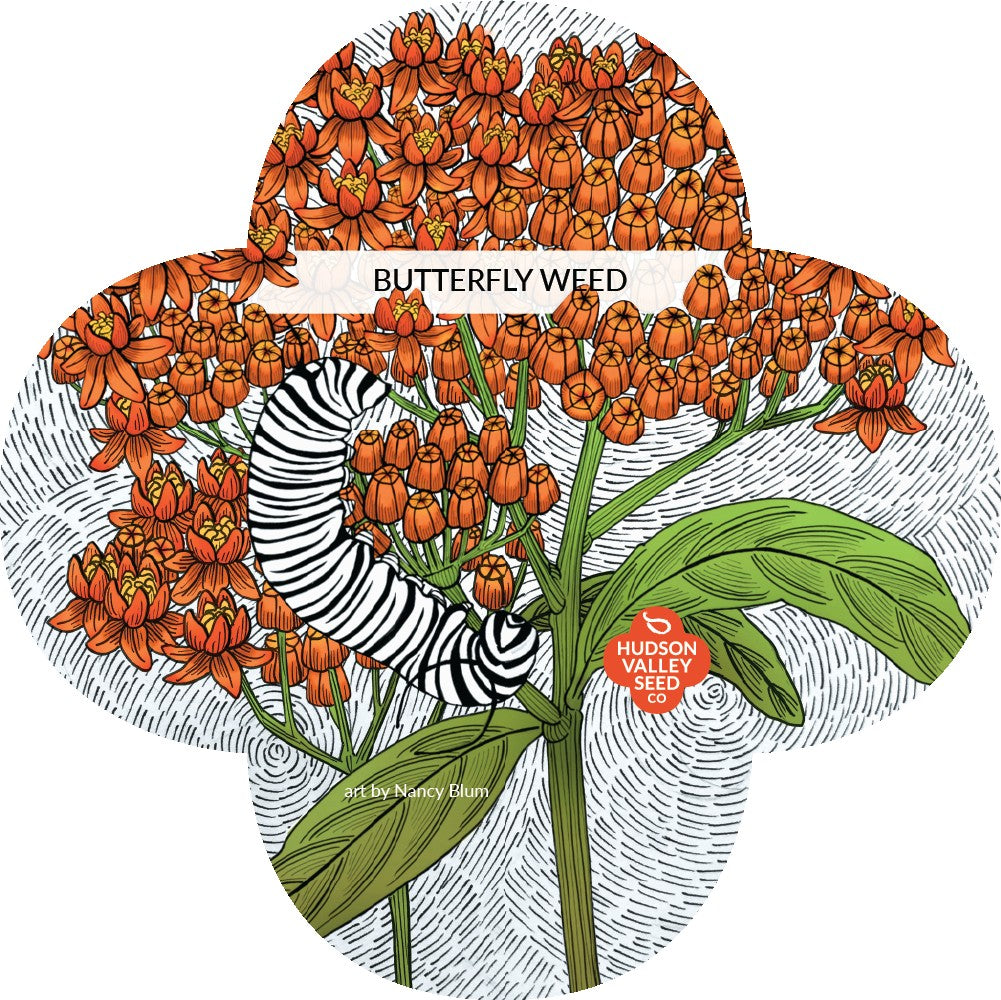Butterfly Weed
Asclepias tuberosa
Conventionally Grown
Build a buffet for the butterflies!
Keeping butterfly populations happy and robust is a team effort, one that cannot be achieved by plantings of Common Milkweed alone. Although related, Butterfly Weed is a different species, with a wider native range and a habit and growth schedule that is all its own. It tends to flower for a longer duration of time than Common Milkweed, and it lacks milky sap. The nectar within its blooms attracts butterflies of all types, and the larvae of monarchs feed on the leaves. Long live the lepidoptera!
Ships within 2-3 business days
Couldn't load pickup availability
Growing instructions
For spring plants, cold-stratify seeds by sowing directly into soil from fall through winter. Or, sow 8-10 weeks before last frost in deep seed-starting pots about ¼" deep, in rich, damp soil. Cover and refrigerate for 3-4 weeks. After refrigeration, move to a 70-degree, well-lit spot for germination, which usually occurs in 14-21 days. Transplant outdoors after frost in an area where plants can naturalize and live for years. Perennial (plants may bloom late in the first year, or not until the second year).
Please note: Butterfly Weed (Asclepias tuberosa) is native to much of the eastern and mid continental U.S.—most areas east of the Rocky Mountains. If you live outside of these areas, please do not buy or plant Asclepias tuberosa. Before planting any milkweed, it's always a wise idea to reference monarchwatch.org or the Xerces Society for more information on milkweed species that are native to your specific area.
Product Details
| Days to Maturity | 365 days |
|---|---|
| Hardiness Zone Range | 4 5 6 7 |
| Sun Conditions | Full Sun (8+ Hours Sun) |
| Planting Depth | 1/4" |
| Row Spacing | 18" |
| Plant Spacing | 15" |
About the artist




Butterfly Weed
- Regular price
-
$4.39 - Regular price
-
- Sale price
-
$4.39




